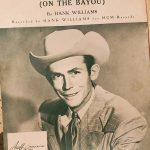Hank Williams – Cold, Cold Heart


Introduction
There’s a unique power in the way music can encapsulate deep emotions, resonating with listeners across generations. Hank Williams’ “Cold, Cold Heart” is a prime example of this phenomenon. The song, written during a period of personal turmoil for Williams, has become an enduring classic that continues to move audiences with its raw, heartfelt lyrics.
About The Composition
- Title: Cold, Cold Heart
- Composer: Hank Williams
- Premiere Date: February 2, 1951
- Album/Opus/Collection: Included in various albums and compilation releases, notably in Hank Williams’ posthumous collections.
- Genre: Country
Background
“Cold, Cold Heart” was penned by Hank Williams in 1951, at a time when he was grappling with personal issues, including the complexities of his marriage to Audrey Sheppard. The song is deeply autobiographical, reflecting the emotional pain Williams experienced from feeling misunderstood and emotionally distant from his wife. Upon its release, “Cold, Cold Heart” struck a chord with listeners, quickly climbing the charts and solidifying Williams’ reputation as one of the most poignant voices in country music.
The song’s impact was immediate and profound, leading to multiple cover versions by various artists across genres. Its haunting melody and straightforward lyrics captured the essence of heartbreak in a way that was both relatable and universal.
Musical Style
Musically, “Cold, Cold Heart” is quintessential country, characterized by its simple yet effective arrangement. The song primarily features acoustic guitar and fiddle, which complement Williams’ plaintive vocals. The structure is straightforward, with a verse-chorus format that allows the emotional weight of the lyrics to take center stage. Williams’ use of a mournful melody line, paired with the minimalist accompaniment, amplifies the song’s theme of emotional desolation.
Lyrics/Libretto
The lyrics of “Cold, Cold Heart” revolve around themes of unrequited love, emotional betrayal, and the lingering pain of a relationship gone awry. Williams’ words are direct and poignant, painting a vivid picture of a heart hardened by love’s disappointments. The repetition of the phrase “cold, cold heart” throughout the song serves as both a lament and an accusation, reflecting the duality of sorrow and anger that often accompanies heartbreak.
Performance History
“Cold, Cold Heart” has been performed by numerous artists over the decades, each bringing their own interpretation to the piece. One of the most notable covers was by Tony Bennett in 1951, which helped bridge the gap between country and pop music at the time. Bennett’s version reached number one on the Billboard pop charts, further cementing the song’s place in American music history. The song has since been covered by a wide range of artists, from jazz musicians to rock and roll icons, illustrating its versatility and broad appeal.
Cultural Impact
The cultural impact of “Cold, Cold Heart” is significant, influencing not just country music but also the broader music landscape. Its success demonstrated the crossover potential of country music, paving the way for other country artists to reach mainstream audiences. The song’s themes of heartache and emotional turmoil have made it a staple in films, television shows, and even in literature, where it’s often cited as a quintessential example of a heartbreak ballad.
Legacy
“Cold, Cold Heart” remains one of Hank Williams’ most enduring works, continually resonating with audiences nearly 70 years after its release. Its simplicity, combined with its emotional depth, ensures that it remains relevant to new generations of listeners. The song is a testament to Williams’ ability to translate his personal pain into a universal experience, making “Cold, Cold Heart” a timeless piece in the canon of American music.
Conclusion
Reflecting on “Cold, Cold Heart,” it’s clear that Hank Williams captured something truly special with this song. Its haunting melody and poignant lyrics continue to move listeners, making it a must-hear for anyone interested in the roots of American music. I encourage you to seek out various renditions of this song to fully appreciate its impact, starting perhaps with Hank Williams’ original recording or Tony Bennett’s iconic cover. Each version offers a unique perspective on this timeless expression of heartache.











